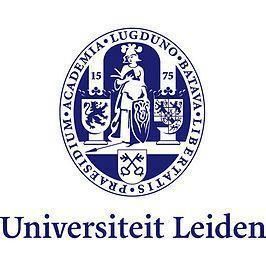2019 Conference on Cyber Norms: Dealing with Uncertainty
From 5 to 6 November 2019, The Hague Program for Cyber Norms is organizing its second conference on cyber norms taking 'dealing with uncertainty' as its theme.
! Early bird discount available until 15 September 2019: €200 (regular fee: €300) !
Keynote speakers:
- Lucas Kello, Senior Lecturer in International Relations, serves as Director of the Centre for Technology and Global Affairs, and is also co-Director of the interdisciplinary Centre for Doctoral Training in Cyber Security at the Department of Computer Science at the University of Oxford. Author of the book 'The Virtual Weapon and International Order'.
- Susan Landau, Bridge Professor of Cyber Security and Policy at the Fletcher School of Law and Diplomacy and the School of Engineering, Department of Computer Science, Tufts University and Senior Fellow at the Fletcher School Center for International Law and Governance and Visiting Professor, Department of Computer Science, University College London. Former Google privacy analyst and author of the book 'Listening In: Cybersecurity in an Insecure Age'.
- Duncan Hollis, Professor of Law at Temple Law School. His scholarship engages with issues of international law, interpretation, and cybersecurity, with a particular emphasis on treaties, norms, international organizations, and other forms of international regulation.
- Bibi van den Berg, Professor of Cybersecurity Governance within the Faculty of Governance and Global Affairs at the Institute of Security and Global Affairs at Leiden University.
In addition to the keynote speakers, we will be welcoming a diverse set of researchers who will present on topics such as data protection & security, non-state and public-private norms, uncertainty in 5G, concepts in research, cyber insurance, regional perspectives, attribution, and international relations & international law.
About the conference
One way of looking at cyber norms for responsible behaviour is to see them as tools to deal with the uncertainties engrained in the fact that the internet now underpins our societies, economies, vital infrastructures and vital state processes such as elections. This uncertainty can result from the unpredictability of state behaviour – hence the focus on norms for responsible state behaviour – but it can also be traced to the impact of technological developments and/or (new) business models, un- and under-prepared organizations and individuals and a persistent lack of reliable data on the threats and risks to our digital societies. If uncertainty is a central characteristic of (digital) life, then how can states, companies and citizens deal with that uncertainty? How can public instruments such as (international) law, norms and confidence building measures (CBMs) but also private instruments such as insurance, liabilities and (technical) standards contribute to reducing and/or dealing with uncertainty? Also, if the frame of uncertainty and risk applies to international cyber security, then there should be room for categories of acceptable and residual risk in some categories of uncertainty, although we often lack a sense of what that might be. If the frame of (national) security applies, often triggering zero-sum thinking, there is arguably less tolerance for unaddressed uncertainties.
So in 2019, we hope to widen the conversation about cyber norms by taking ‘uncertainty’ as the general theme for the annual academic conference of The Hague Program for Cyber Norms. As before we aim to bring together scholars from a diverse range of disciplines including – but not limited to – international relations, international law, economics, political economy, security studies, political sociology, philosophy, political science, science and technology studies and engineering. The key to understanding the development of norms in cyberspace in light of the uncertainties that characterize cyberspace lies in bringing together the various disciplines that it relates to.





